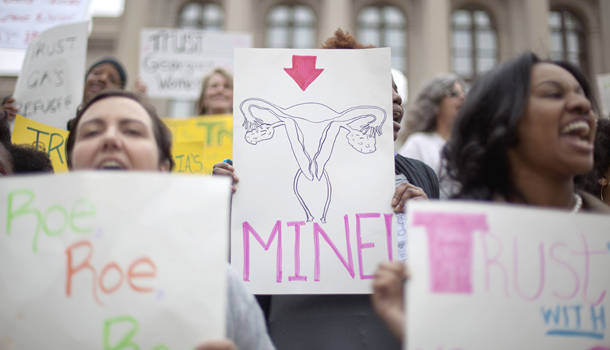
The Final Frontier
“Unfortunately, I don’t think [the fight for women’s rights] will ever end. I think we’ll always have to assert ourselves and fight for what’s right. It’s just the reality of the work we live in,” says LaNiece Jones, executive director of Black Women Organized For Political Action (BWOPA).
BWOPA, founded in 1968, has worked to inform Black women of their political power. The organization campaigned for Ron Dellums during its early years advocating for African-American political engagement. This group is one of many tackling the final frontier of the women’s rights movement: electing women to office.
Jones would also like to see more Black women in public leadership. She says that there needs to be more support for Black female politicians to move them from local to state or national government positions.
“If we’re not at the table when folks are making decisions, then we’re left out,” she says. “Who better understands how to raise a family on limited resources?”
Beyond voting on health policies and defeating voter registration obstacles, women must face the fact that they are still underrepresented politically.
According to the Center for American Women in Politics, women currently hold 16.8 percent of the 535 seats in Congress, 17 percent of the 100 seats in the Senate and 16.8 percent of the 435 seats in the House of Representatives. Forty-two women of color have served in Congress — 28 of which were African-American.
“I would encourage women to remember that all the issues that they care about are all centered around people who make decisions about those issues. We have to exercise our right to participate and give voice to those issues,” Woods-Jones says. “You should not complain about circumstance if you’re not prepared to participate in its change.” //
Click here for part two, which examines the Latino vote.



